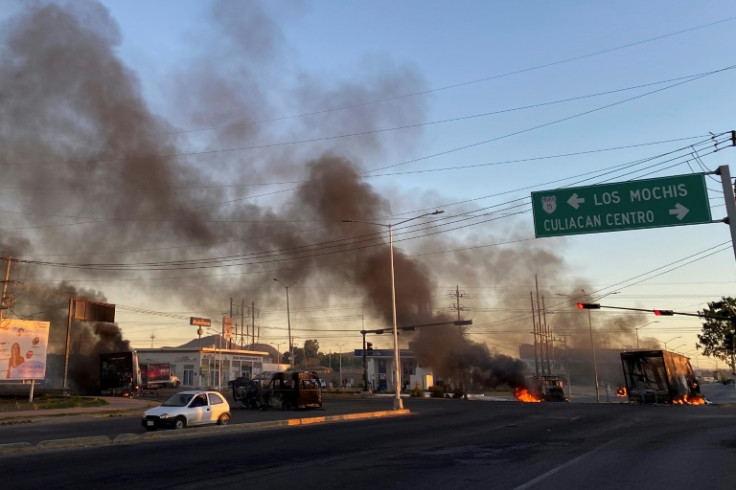
Culiacán, a longstanding stronghold of the Sinaloa Cartel, is now mostly controlled by the "Chapitos" faction, led by the sons of Joaquín "El Chapo" Guzmán. Their operation in the city relies heavily on a network of approximately 700 young operatives known as "punteros."
Punteros are tasked with observing and relaying information about the movements of law enforcement and rival factions. They are commonly seen trailing behind vehicles from the Army, Navy, and National Guard, equipped with radios to ensure constant communication with their handlers.
An interview a puntero affiliated with the Chapitos and conducted by La Opinión revealed insights into their operational dynamics. According to Rodrigo, punteros are integral to maintaining the faction's control, particularly given the strained relations between different cartel factions.
He noted that while the rival faction led by Ismael "El Mayo" Zambada, known as La Mayiza, relies on less extensive surveillance, there is significant cooperation and communication between different groups, especially in southern regions like Mazatlán.
The role of punteros is at the lower end of the Sinaloa Cartel's hierarchy, primarily filled by young individuals who face considerable risks. They start working as young as 13 years old, often riding inexpensive motorcycles and using radios for communication. Their work schedules consist of 12-hour shifts with equivalent rest periods, earning around 4,000 Mexican pesos biweekly. This pay is considered modest given the high-risk nature of their role, which involves strict rules such as prohibitions on drug use to prevent errors that could endanger the operations.
Advancement opportunities exist within the cartel structure, with some punteros transitioning to more dangerous roles as sicarios (hitmen), where they earn higher wages but face increased responsibilities. Despite the challenging conditions, some punteros find aspects of their work appealing, though Rodrigo himself suggests that alternatives might be preferable.
A survey by the State Public Security Council (CESP) indicates that 60% of residents in Culiacán, Mazatlán, and Los Mochis have observed punteros engaging in surveillance or tracking military movements.
Sinaloa's Undersecretary of Public Security, Leoncio Pedro García, has noted the disparity between the number of punteros and security personnel, describing the situation as complicating crime-fighting efforts. This statement was later contested by Sinaloa's Secretary of Security, Gerardo Mérida Sánchez, who argued that the number of punteros does not exceed that of police officers.
© 2024 Latin Times. All rights reserved. Do not reproduce without permission.










